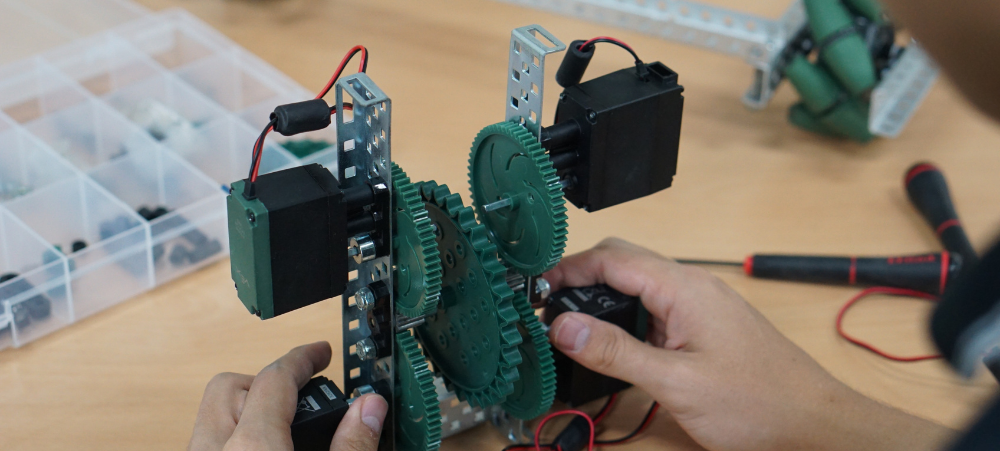Artificial Intelligence (AI) is revolutionising homeschooling, offering a personalised, adaptive, and engaging educational experience tailored to each student’s unique learning style. This article explores how AI is reshaping homeschooling, enhancing engagement, and improving learning outcomes. Dive into the remarkable ways AI enhances the educational journey, making it more effective and enjoyable than ever before.
Personalised Learning Paths
AI’s ability to create personalised learning paths is a game-changer in homeschooling. By analysing a student’s strengths, weaknesses, and interests, AI helps tailor the educational experience, fostering deeper understanding and sustained interest over time.
Virtual Tutors and Adaptive Curriculum
AI-powered virtual tutors provide individualised instruction, adapting the curriculum to match the student’s pace and abilities. For example, if a student excels in mathematics but struggles with English, the AI tutor adjusts the difficulty level accordingly. This ensures that each child progresses at their natural speed, minimising frustration and maximising learning efficiency.
Real-time Feedback and Assessment
Gone are the days of waiting for test results to understand a student’s performance. AI offers real-time feedback, allowing parents and educators to promptly identify and address areas where a student may be struggling. This immediate insight facilitates timely interventions, enhancing the overall learning process.
Enhancing Engagement and Motivation
AI doesn’t just personalise the learning experience; it makes it more engaging. AI-powered educational tools can gamify lessons, turning learning into an exciting adventure. Students can earn points, badges, or rewards, keeping them motivated and eager to learn.
Ethical Considerations in AI Homeschooling
While AI offers numerous benefits, it also presents ethical challenges that need careful examination:
- Privacy Concerns
AI in homeschooling often involves collecting and analysing student data to tailor educational experiences. Ensuring the privacy and security of this data is paramount. Robust measures must be in place to safeguard sensitive information, protecting students from potential misuse or unauthorised access.
- Bias and Fairness
AI algorithms can perpetuate biases, exacerbating existing inequalities. It is crucial to address bias systematically in AI assessments to ensure fair educational opportunities for all students. Developers must actively work to eliminate biases from algorithms, fostering an equitable learning environment.
- Transparency and Accountability
Understanding how AI algorithms make decisions is often challenging due to their complexity. Transparency in the design and functionality of AI systems used in homeschooling is essential. Parents, educators, and students should have access to information explaining how decisions are made and the data used.
Equitable Access
AI homeschooling tools should be accessible to all students, regardless of socio-economic background. Addressing issues related to technology availability, internet access, and developing AI tools for diverse learning needs is crucial.
Human-AI Collaboration
While AI can enhance learning, it should not replace the essential human elements in education. The roles of educators, mentors, and parents remain vital. Ethical AI in homeschooling should focus on facilitating human-AI collaboration, empowering educators and parents to make informed decisions and providing tools that support their roles.
AI’s Long-Term Impact on Social Skills
As AI becomes more prominent in education, concerns about its impact on social skills arise. Balancing AI-driven individualised learning with opportunities for social interaction is essential to ensure students develop necessary interpersonal skills.
The Future of AI in Homeschooling
As technology advances, expect even more innovative uses of AI in homeschooling, including enhanced virtual reality learning experiences, further personalization, and increased accessibility. The potential for AI to create a more engaging and effective homeschooling experience is immense.
 Tips for Implementing AI in Homeschooling
Tips for Implementing AI in Homeschooling
- Understand Your Child’s Learning Style: Tailor AI to individual preferences and needs.
- Choose the Right AI Tools: Research and select tools that align with educational goals.
- Set Clear Educational Goals: Define objectives to leverage AI tools effectively.
- Balance AI and Human Interaction: Foster discussions, collaborative projects, and mentorship.
- Regularly Monitor Progress: Be flexible and adjust the approach as needed.
- Encourage Self-Directed Learning: Allow exploration and independent learning guided by AI.
- Stay Informed About AI Developments: Keep updated with new AI tools and resources.
- Prioritise Ethical AI Considerations: Choose reputable AI tools that prioritise privacy, security, and transparency.
In conclusion, AI is revolutionising homeschooling, offering personalised learning paths, virtual tutors, real-time feedback, and engaging educational tools. While ethical considerations are essential, the future of AI in homeschooling is promising. Book a consultation with Wingu Academy to learn more about leveraging AI for your homeschooling needs.
- A New Year of Innovation: Why 2026 Is the Moment to Choose a Trusted Online School - January 29, 2026
- January Admissions 2026: How to Ensure Your Child Is Registered with a Legitimate Online School - January 21, 2026
- Starting the Year Strong: How Online Schools Are Redefining Academic Support in 2026 - January 16, 2026


 Tips for Implementing AI in Homeschooling
Tips for Implementing AI in Homeschooling


